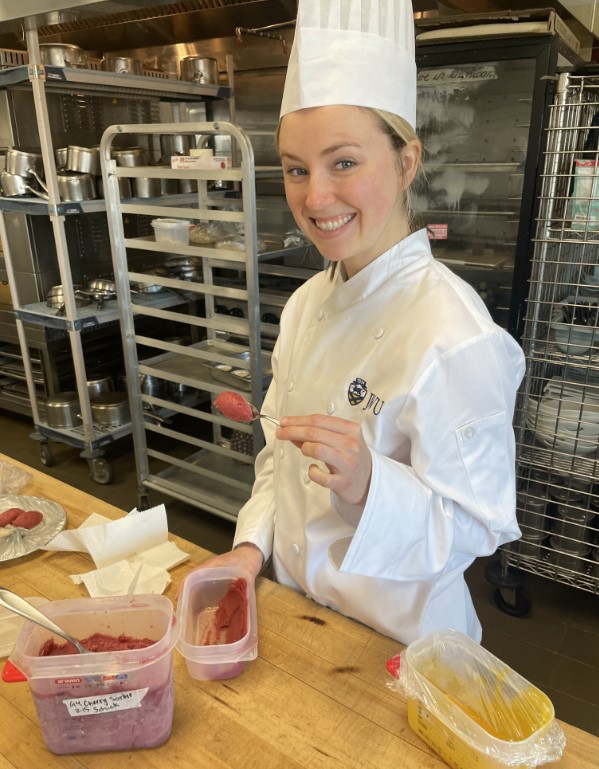Jenny Litzau, 2023
Spring Break at JWU: Student Experiences

When I think about my experience at the Johnson and Wales University Center for Food Innovation & Technology, I think about collaboration. We spent much of the week learning to bake and cook healthfully and enjoying the delicious meals prepared by those students. Alongside those classes, however, we also got the opportunity to take part in many rich conversations with faculty, students, and local food organizations about what it truly takes to make transformations within the food system.
My time at JWU reminded me of the importance of all players in the food system. As a student in the agriculture, food and environment program, I spend a lot of time thinking about producers at the farm level, but over the course week, I realized how infrequently we think about those who actually prepare the food. Learning about the multitude of academic programs offered by CFIT at JWU, including culinary nutrition and culinary sustainability, it became clear that we’re all thinking about food systems, just through different lenses. The university is empowering its culinary students to be food systems leaders through their advocacy of health and sustainability. The culinary skills these students are developing is unlocking the key to true behavior change and dietary shifts, that is by simply making the scientifically-backed recommendations on what to eat for better health and a better planet taste delicious.
During our time, we got to witness culinary students studying the science behind their preparations, presenting an innovative new product at a pitch competition, experimenting with new recipes for a Healthcare Without Harm culinary contest, and running weekly free-meal programs utilizing leftovers from classes. Those experiences demonstrated the ways in which culinary arts can make a real impact beyond the kitchen. In fact, one of my favorite parts of the week was simply listening to the students speak so passionately about what they’re planning to do after graduating. The unique skill sets those students are developing will play an important role in helping to tackle the challenges embedded within our food system.
Prior to this trip, I had an appreciation for chefs, largely thanks to my obsession with Netflix’s Chef’s Table series, and the nutrition-focused initiatives that have been implemented by many. However, I see now that chefs really do need to be brought to the table to have their voices heard as they are drivers of change. Not only do they have the ability to turn any basic ingredient into something delicious, but they also are the ones capable of teaching people how to take complicated nutrition science and apply it through cooking. To truly make an impact in our food and healthcare systems will require a collective effort that includes chefs.